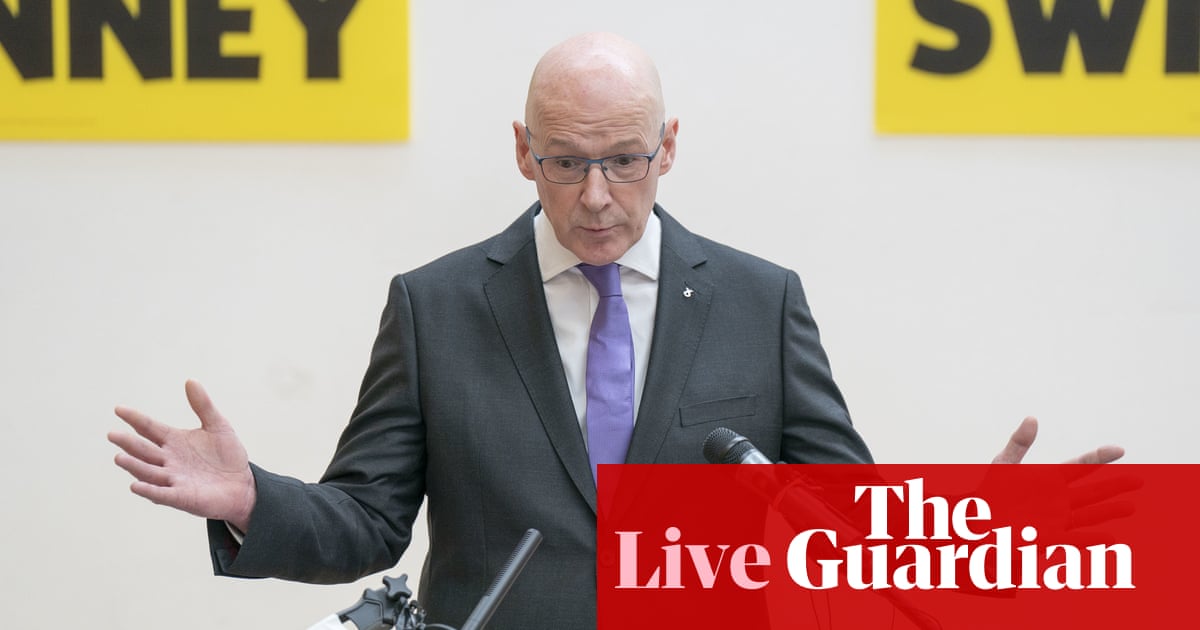From HS2 to the NHS, Britain doesn’t cut costs. Disastrously, it just cuts corners | Phillip Inman


As governments across the world assess their responses to four years of successive economic calamities, it is clear the UK’s default reaction – to cut corners and adopt the cheapest route out of a malaise – has many hidden costs.
Across the public sector, from warships to NHS computer systems and railways, projects are turned inside out and salami-sliced to a point where few can remember the original concept.
Ministers say they are saving money even when it is clear they are spending more – whether incurring higher costs per mile on HS2, installing a “dysfunctional” IT system or building an aircraft carrier that sails with only a fraction of the planes it was designed to support.
Ministers even save money by refusing to pay for independent academic reviews of what little does go ahead, which means that, over time, the government finds itself pressing on with little clue about how new projects will work and what benefit they will generate. It is government by instinct and with a blindfold on, leaving a potential future Labour government to inherit a cultural and administrative deficit alongside a huge funding shortfall.
That’s not the way the Treasury sees it. Jeremy Hunt, like many of his predecessors, believes the government must put every spending initiative and project through the financial mincer to save the exchequer from imminent bankruptcy.
When it comes to recent examples of corner cutting, one small instance can be found in the NHS, where the introduction of GP assistants, sometimes called physician associates, is considered an appropriate answer to a shortage of GPs.
These individuals are recruited and fast-tracked to take over the basic duties, and some clinical tasks, previously performed by a doctor. The government is enthusiastic even if many GP practices are wary.
There is worse corner cutting in the health service when you consider the way new IT systems are layered on top of previous ones with no money for integration. It means that many hospital departments are fully staffed, but with nurses who have little time to treat patients while they input data into several separate software programmes.
A minister should want to know how well a project raises the productivity of workers or increases the scope of what the public sector can do. Yet we know from independent consultants who have worked inside Whitehall that ministerial instinct too often overrules evidence.
Massive overhauls of public sector activity – switching local authority housing to social housing associations, transferring schools from local authority control to academy trusts – are the subject of discrete research projects or less-than-independent departmental reviews.
A recent House of Lords review that asked “are multi-academy trusts the answer?” could not produce any academic evidence that this major shift in education policy over the past 20 years had improved the performance, skills or mental wellbeing of school-age children.
Elsewhere, the National Audit Office recently told the Treasury it was dismayed that among £200bn of tax measures, there was little evaluation of those designed to encourage economic growth.
“There is no agreed number of reliefs targeted at economic growth, and they are neither monitored as a group nor compared for overall effectiveness,” it said. The conclusion was that tens of billions of pounds had been wasted because it was inconvenient to examine what worked and what didn’t.
In Two Hundred Years of Muddling Through, the writer Duncan Weldon describes how British politicians, when tackling crises, used to work for the good of the nation to steady the ship. A less generous view would condemn those politicians for throwing overboard anyone that weighed on government’s ability to maintain an elevated standard of living for the majority. The miners and steelworkers found themselves in this situation in the early 1980s.
That’s why a recent report by the IPPR thinktank examining the effects of AI on employment is understandably gloomy.
UK governments are notorious for discarding those whose skills no longer fit with incoming technologies. There isn’t the money for retraining or apprenticeships, the politicians say, leaving workers displaced by AI, in all likelihood, to figure things out for themselves.
This is Labour’s inheritance. A culture that allows politicians to plough ahead with projects untested by examination and, when they unravel, lets the project be trimmed until its value is largely lost.
It is this deficit of rigour that will heap extra costs on future generations – not the borrowing needed to achieve some progress.
Source link




